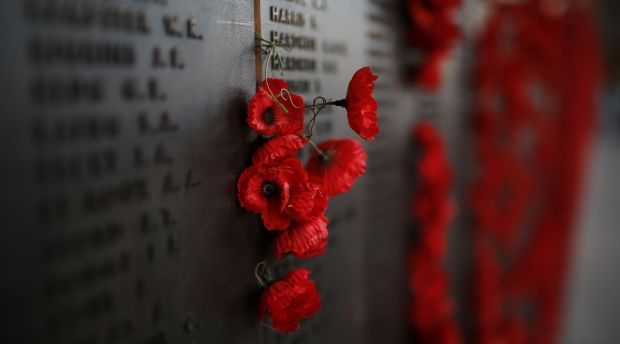
The case comes amid a "de-communization" campaign by the Ukrainian government, which has celebrated nationalist groups who fought the Soviets. If charged, the veteran could face a prison sentence, The Guardian wrote.
The prosecutor general opened the investigation into the "intentional killing of two or more people on the territory of Rivne region in March 1952 by members of the administration of the state security ministry", according to a letter posted on the website of the National Human Rights Centre, an organization which has assisted nationalists facing prosecution.
The website said the case was that of Nil Khasevych, a member of the Ukrainian Insurgent Army (UIA) who, along with two other fighters, was killed by Soviet security forces in a standoff at that place and time.
Khasevych has been accused of collaborating with the Nazis during the second world war. The National Human Rights Centre website called him an "independence fighter" and said the prosecution of his killer would give "appropriate legal appraisal to the crimes of the communist epoch".
The operation that killed Khasevych was headed by Boris Steckler, now a 94-year-old Jewish veteran who was decorated numerous times for bravery in the war and later served in the KGB.
Read alsoPoroshenko, Groysman congratulate Ukrainians on Day of Ukraine's liberation from Nazi invadersSteckler confirmed in a 2013 interview that he had directed the mission against Khasevych, but claimed the insurgent had shot himself before Soviet soldiers threw grenades into the bunker where he was hiding. They had given him a chance to surrender, Steckler said.
Last year, the head of the Ukrainian government's National Memory Institute, Volodymyr Vyatrovych, asked the state security service to open its files on Steckler under a new package of de-communization laws introduced to parliament.
In addition to opening the archives, the laws made it a criminal offence to question the actions of the UIA and another nationalist group, a move condemned by international scholars as an attack on free speech. Steckler appealed to a Rivne court to block access to the files.
A trained artist, Khasevych was known for creating patriotic images and printing anti-Soviet literature for the UIA, a group of nationalist fighters who on some occasions collaborated with the Nazis and took part in genocide of Jews and Poles.
According to a passage attributed to Steckler in the 1985 book Chekists Talk, Khasevych was appointed as a local judge by the invading German forces and sentenced Ukrainians who resisted the occupation to punishment or execution.
But Khasevych and other wartime insurgents have been increasingly celebrated as early freedom fighters after nationalists played a key role in the street demonstrations that brought a pro-western government to power in Kyiv in 2014.
Eduard Dolinsky, director of the Ukrainian Jewish Committee, called the murder investigation an "injustice" and said Khasevych's actions, not Steckler's, should be condemned. "He was an active fighter when they destroyed Jews and Poles," Dolinsky said. "It's the Ukrainian Insurgent Army that committed a war crime."
Although cases more than 15 years old are not typically prosecuted, a court can make an exception if the crime is serious enough to bring a lifetime sentence, according to lawyer Markiyan Halabala. That means Steckler could be sent to prison, but Halabala said that outcome was unlikely in this case, which would be the first of its kind in Ukraine.

